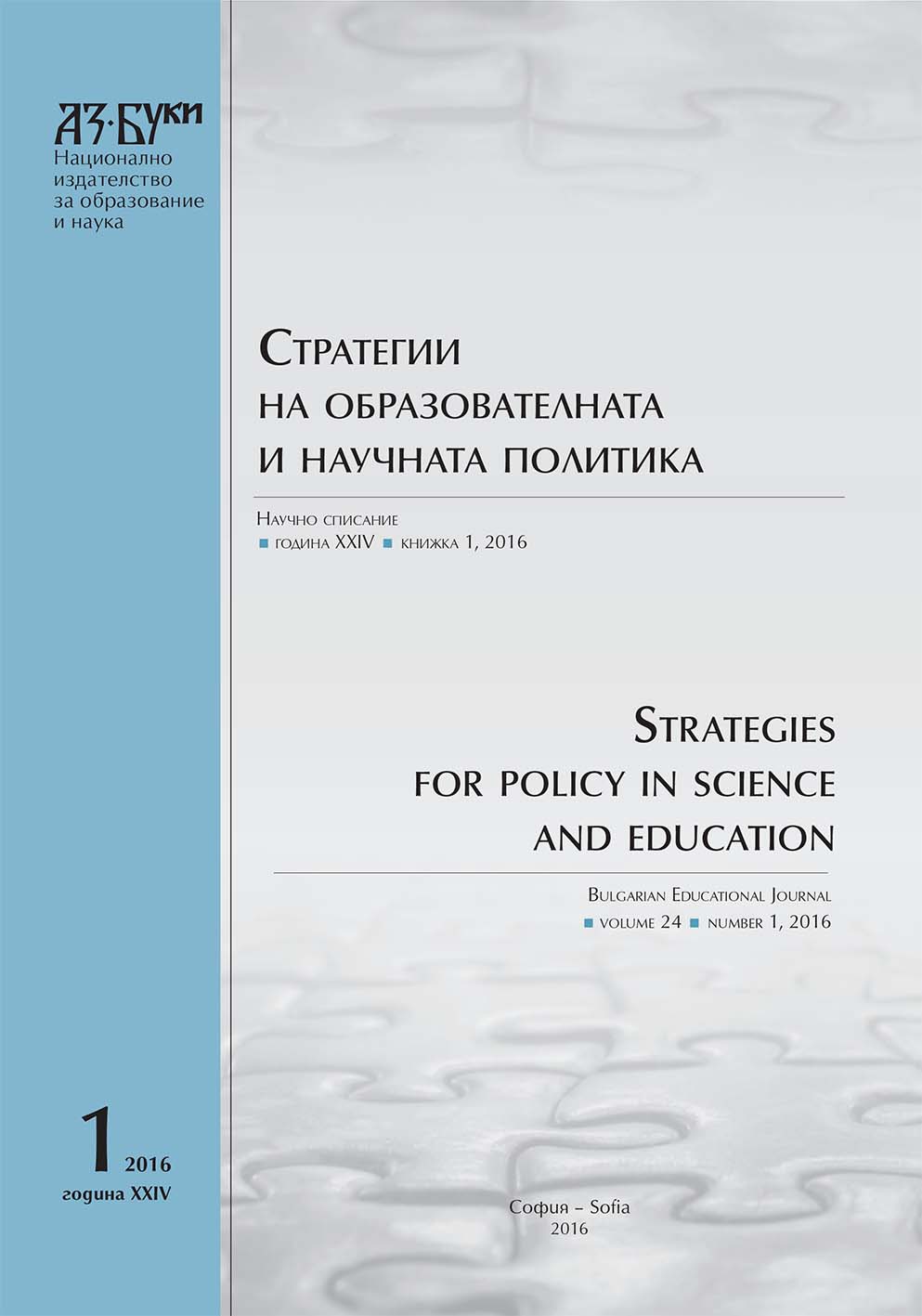Участие на Аза, правилата и смисловият контекст в рефлексивната ситуация
Participation of Self, Rules and Meaning Context in the Reflexive Situation
Author(s): Boris MinchevSubject(s): Social Sciences, Education, Psychology, Communication studies, Sociology, School education, State/Government and Education, Social psychology and group interaction, Psychology of Self, Social development, Sociology of Culture, Sociology of the arts, business, education, Sociology of Education
Published by: Национално издателство за образование и наука „Аз-буки“
Keywords: Self; meaning context; rules; reflexive situation; reflexive skills
Summary/Abstract: The paper is a theoretical account of human capacity for reflexive conscious experience. The conceptual background of the topic is shaped by the empiricism – rationalism debate initiated by R. Descartes and J. Locke. The contemporary background inherited the positions in the old controversy. Next an original view on reflexivity is proposed. It is summarized in 11 theses. The main idea is the organization of the reflexive situation around a reflexive Self. The latter is composed of two parts – active spontaneous “I” and a passive content “me”. Both are shifting fast as fast phases of a full Self. The Self is internally reflexive. The Self is responsively reflective to the rest of the situation. Thus reflexivity is doubled. This subjective amplification makes reflexive feelings “stereoscopic”. Self-centered situations become intensely detailed due to the reflective attitude and it makes it viewed in a new way. In the report the prototypic reflexive situation is discussed.The latter is constituted by the meaning context, experienced by the Self of the individual in a specific socio-cultural setting. A vast variety of reflexive patterns may be comprehended by arrangement around a prototype. Personal reflexivity is prototypic. The other reflexive states share partially properties of personal reflexive experience. Complex volitions are constituted by personal reflection. For the alleviation of the coordination going on, the Self relies on rules, specific affordances, performing a number of functions – instrumental, defining, criterial, etc. Rules are designed to master a particular situation in which the Self, meaning and setting also converge. The very mastering of situations of cognitive or existential-value nature leads to the acquisition of reflexive skills, first supported by rules. Later the rules are implicitly felt or become habits. Rules are important didactic means in the educational reflexive practice. Therefore they should be known about their didactic applications.
Journal: Стратегии на образователната и научната политика
- Issue Year: 24/2016
- Issue No: 1
- Page Range: 53-66
- Page Count: 14
- Language: English
- Content File-PDF

